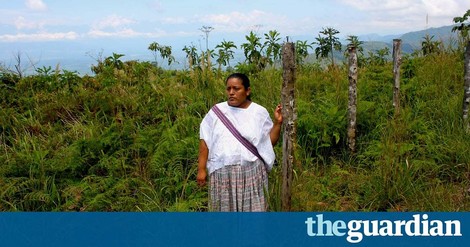Your podcast discovery platform
Curious minds select the most fascinating podcasts from around the world. Discover hand-piqd audio recommendations on your favorite topics.

piqer for: Globalization and politics Global finds
Luis BARRUETO is a journalist from Guatemala. Studied business and finance journalism at Aarhus University in Denmark and City University London.
Q'eqchi' Women To Test Disconnect Between Mining Corporations And Their Local Subsidiaries In LAC
A group of indigenous Maya Q’eqchi’ women from Guatemala launched a legal challenge that could set back Canadian companies' vast interests and their mining operations through the developing world. Nina Lakhani writes about their case in The Guardian.
The lawsuit "centres on allegations dating back to 2007, when the women say hundreds of police, military and private security personnel linked to a Canadian mining company descended on the secluded village of Lote Ocho in eastern Guatemala" to set their homes ablaze, and rape the women and girls in the village.
The nearby Fenix nickel mine was owned at the time by Vancouver-based Skye Resources. In 2008, it was bought by Toronto's Hudbay Minerals, and then sold to a Russian company in 2011.
AN END TO CORPORATE NEGLIGENCE?
For decades, mining companies' subsidiaries in the developing world have acted as shields against allegations of human rights defenders ranging from harm to the environment, repression against mine's opposers, and forced displacement of indigenous communities. But this kind of case aims at addressing "the perceived legal disconnect between multinationals and the local subsidiaries who carry out their operations abroad," Lakhani explains.
Canada is a particular worry for Latin America. Its companies control 50 to 70 per cent of the mining industry in the region, according to the Council of Hemispheric Affairs, and the United Nations has singled out Canadian companies for their abuses.
As mining companies come under ever closer scrutiny, however, the Lote Ocho women could set a precedent that opens up the floodgates, and creates a legal means to redress similar human rights violations throughout the region.
